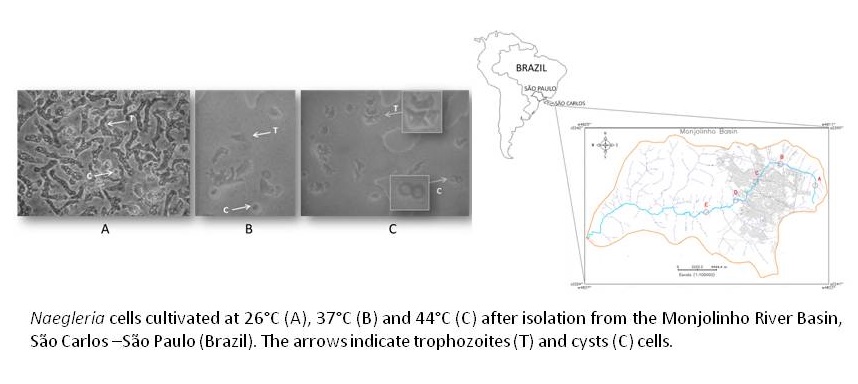The genus Naegleria, of free-living amoeba (FLA) group, has been investigated mainly due to its human health impact resulting in deadly infections and their worldwide distribution on freshwater systems. Naegleria fowleri, colloquially known as the “brain-eating amoeba”, is the most studied Naegleria species because it causes Primary Amoebic Meningoencephalitis (PAM) of high lethality. The assessment of FLA biodiversity is fundamental to evaluate the presence of pathogenic species and the possibility of human contamination. However, the knowledge of FLA distribution in Brazil is unknown, and to rectify this situation we present a research on identifying Naegleria spp. in the Monjolinho River, as a model study. The river is a public Brazilian freshwater source that crosses the city of São Carlos. Five distinct sampling sites were examined through limnological features, trophozoites culturing and PCR against internal transcribed spacers (ITS) regions and 5.8S rRNA sequence. The results identified N. philippinensis, N. canariensisi, N. australiensis, N.gruberi, N. dobsoni sequences, as well as a Vahlkampfia sequence. The methodology delineated here represents the first Brazilian Naegleria spp. study on a freshwater system. Our result stresses the urgency of a large scale evaluation of the presence of free-living amoebas in Brazil.

